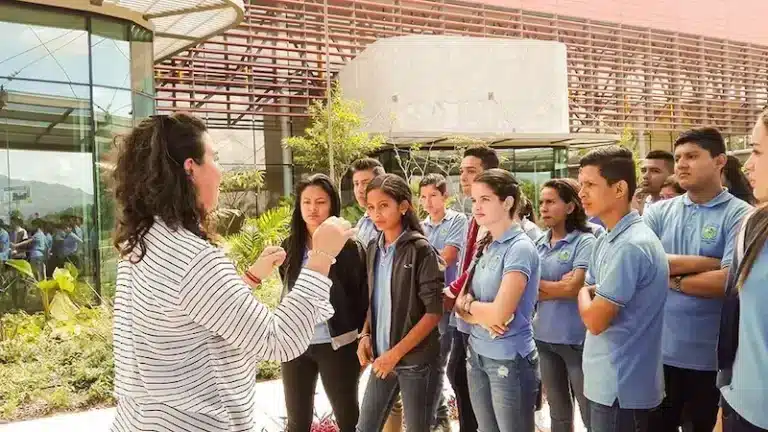Sustainability has become a fundamental pillar for the meetings industry, especially for convention centers aiming to minimize their environmental impact without compromising their economic viability. Implementing financial strategies that promote decarbonization not only contributes to climate change mitigation but also represents an opportunity to optimize operating costs, attract new markets, and strengthen corporate reputation. Adopting measures such as energy efficiency, investment in renewable energy, obtaining sustainability certifications, and smart waste management allows convention centers to achieve a balance between profitability and environmental responsibility, aligning with international standards and responding to the growing demand for sustainable events.
One of the key pillars for profitable decarbonization is energy efficiency, which reduces resource consumption through advanced technologies. Investing in LED lighting systems, high-efficiency heating, ventilation, and air conditioning (HVAC) systems, and improving thermal insulation in facilities not only reduces the carbon footprint but also significantly lowers long-term operating costs. Implementing these improvements should not be seen merely as an expense but as a strategic investment that generates returns through sustained energy savings. Within the framework of the CarbonClear Events By Heroica methodology, the Costa Rica Convention Center has incorporated energy efficiency practices as an integral part of its commitment to decarbonization, optimizing energy consumption for each event through automation and real-time monitoring.
Turning waste into resources is the key to a sustainable business model.
The transition to renewable energy sources, such as the installation of solar panels or large-scale energy storage systems, represents another effective financial strategy to reduce dependence on conventional energy sources. These systems not only provide a clean and sustainable energy source but also allow for additional income generation by selling surplus energy to the power grid. This approach not only contributes to environmental sustainability but also improves the financial stability of the center, protecting it from price fluctuations in the energy market. Combining renewable energy with efficiency strategies strengthens energy self-sufficiency and promotes a resilient long-term business model.
In addition to investments in sustainable infrastructure, obtaining environmental certifications such as LEED (Leadership in Energy and Environmental Design) or BREEAM (Building Research Establishment Environmental Assessment Method) can generate significant financial benefits. These certifications not only validate the convention center’s environmental commitment but also open doors to grants, tax incentives, and preferential financing, which help offset the initial costs of sustainability investments. Furthermore, certifications enhance the center’s reputation, attracting event organizers who prioritize sustainable practices and differentiating it within an increasingly demanding market in terms of environmental responsibility.
Automate to optimize: technology is the ally of financial sustainability.
Efficient waste management is another crucial aspect to reduce operating costs and advance decarbonization efforts. Implementing recycling, composting, and waste reduction programs minimizes expenses associated with final disposal while optimizing resources through reuse and material recovery. By applying circular economy strategies, convention centers can turn waste into opportunities, reducing their environmental impact and achieving significant savings in the process.
Finally, leveraging technology and automation in facility management is a key tool to maximize operational efficiency and minimize costs. Smart building management systems allow real-time monitoring of energy, water, and other resource consumption, adjusting usage according to demand and avoiding unnecessary waste. This data-driven approach not only improves financial decision-making but also contributes to more precise and efficient resource management.
Decarbonization and profitability are not opposing concepts; rather, they can complement each other through appropriate financial strategies that enable convention centers to move toward a sustainable business model. Investing in energy efficiency, renewable energy, sustainability certifications, waste management, and advanced technology not only reduces the carbon footprint but also generates a positive long-term impact on the center’s profitability. The implementation of the CarbonClear Events By Heroica methodology provides a structured framework to ensure that all these strategies are effectively integrated, guaranteeing responsible events that contribute to a more sustainable future for the meetings industry.
@Carlos Castro Chanto
Administrative and Financial Manager





